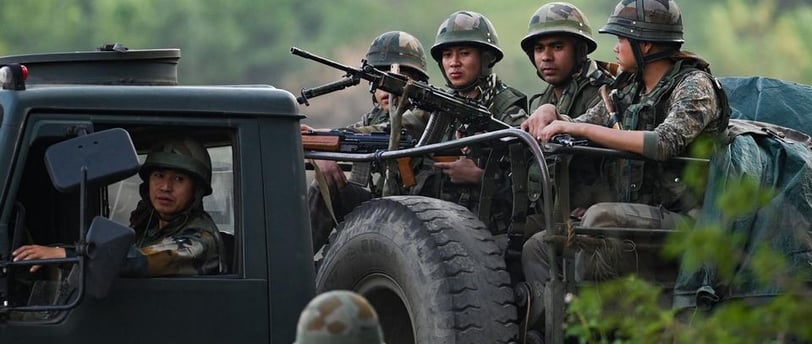The Manipur Issue: A Complex Conflict with Deep Roots
2 min read


The northeastern Indian state of Manipur has been a hotbed of conflict for centuries. The current violence, which has claimed the lives of over 100 people and displaced thousands more, is just the latest manifestation of a conflict that is rooted in a long history of ethnic tensions and disputes over land and resources.
The two main ethnic groups in Manipur are the Meitei and the Kuki. The Meitei are the majority group, and they have traditionally dominated the political and economic life of the state. The Kuki are a tribal group that makes up a significant minority in Manipur, and they have long felt marginalized by the Meitei.
The tensions between the two groups have been exacerbated by a number of factors, including the increasing demand by the Meitei for a Scheduled Tribe status under the Indian Constitution. This would give them privileges comparable to the tribal communities, such as access to government jobs and educational institutions. The Kuki, however, oppose this demand, as they fear that it would further marginalize them.
Another factor that has contributed to the violence is the dispute over land and resources. The Meitei are concentrated in the Imphal Valley, while the Kuki live in the surrounding hills. In recent years, there has been a growing demand for land in the hills, as the Meitei have been expanding their agricultural activities. This has led to conflict with the Kuki, who see the land as their ancestral home.
The violence in Manipur has also been fueled by the activities of insurgent groups. There are a number of armed groups operating in Manipur, some of which have been fighting for independence from India. These groups have often used violence to further their political goals, and they have contributed to the instability in the state.
The Indian government has deployed security forces to Manipur in an attempt to restore order. However, the violence has continued, and there is no easy solution in sight. The conflict is complex, and it is rooted in a long history of ethnic tensions and disputes over land and resources.
In order to resolve the conflict, the Indian government will need to address the underlying causes of the violence. This includes finding a way to accommodate the Meitei demand for a Scheduled Tribe status, while also addressing the concerns of the Kuki. The government will also need to take steps to reduce the demand for land in the hills, and to ensure that the delivery of essential services is not disrupted by the violence.
The violence in Manipur is a reminder of the challenges that India faces in its northeastern states. These states are home to a diverse range of ethnic groups, and there is a long history of conflict between these groups. The Indian government will need to find ways to address these conflicts in order to ensure peace and stability in the region.
Politika & Consilium Research Institute is a government-registered company under the Company Act & India's leading Civil Think Tank.
CIN: U85190DL2021OPC388917
UDYAM NO: UDYAM-DL-11-0027274
Corporate HQ: Assotech Business Cresterra, Noida
Hours
I-V 9:00-18:00
VI - VII Closed
Contacts
011-430151335, +91-9220645329
mail@pcriindia.in, academy@pcriindia.in, careers@pcriindia.in




